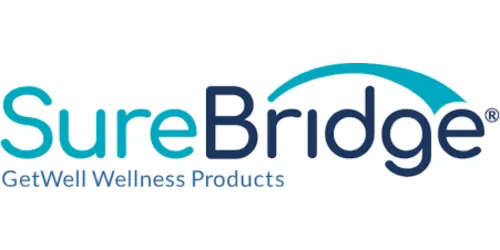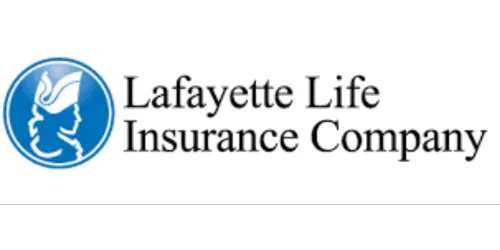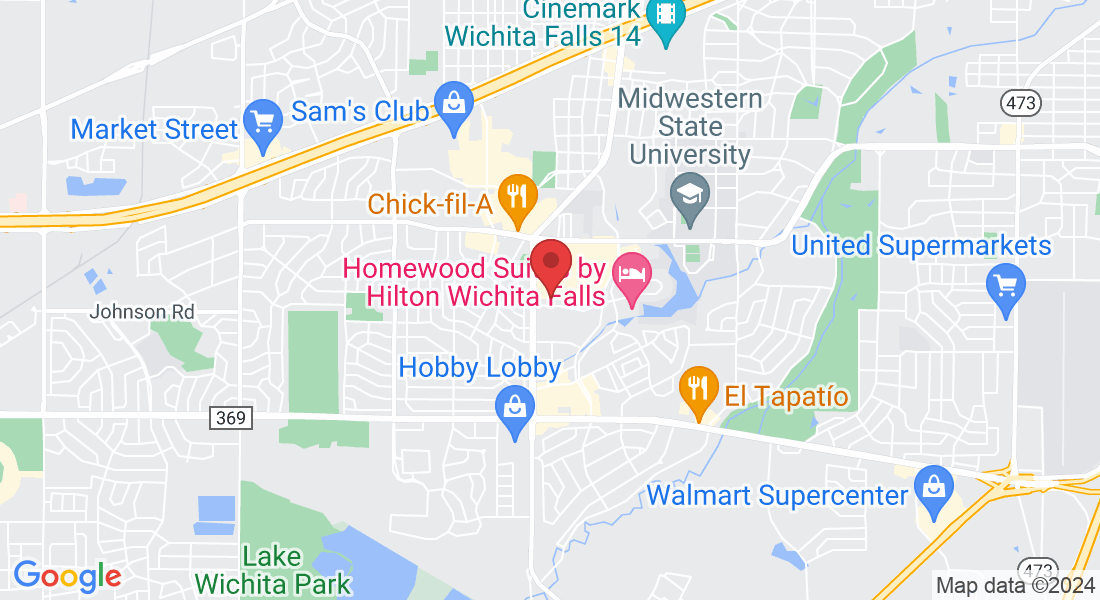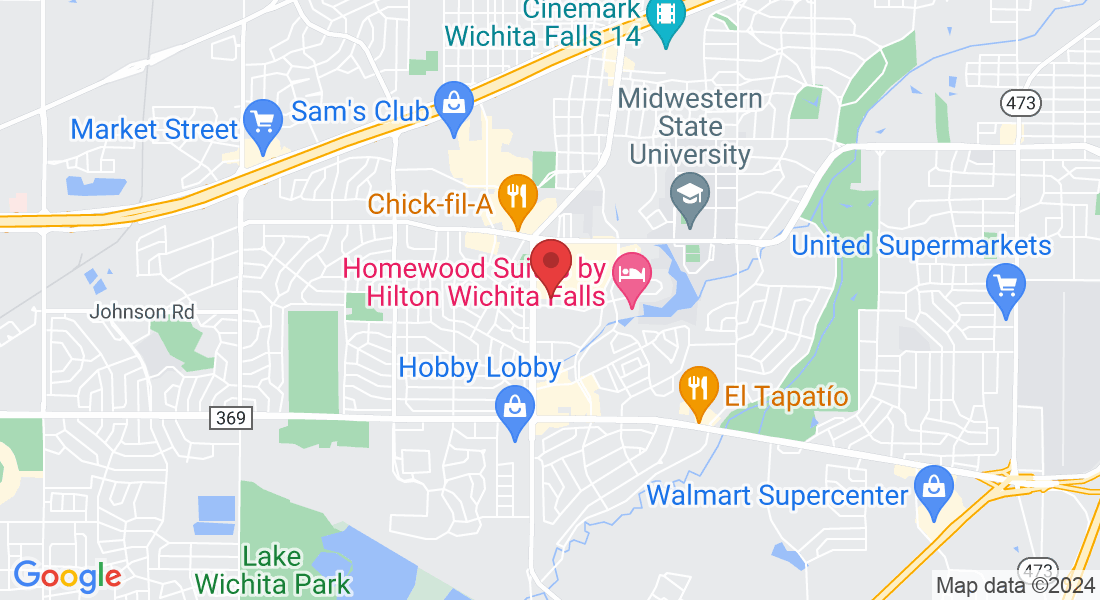
Enhance Employee Benefits with Group Life & Health Insurance
Empower your workforce with our comprehensive group life and health insurance solutions. At Apex Insurance & Benefits Group, we understand the importance of employee well-being. Explore our tailored options to offer competitive benefits that protect and enhance your team's security and productivity.
Enhance Employee Benefits with Group Life & Health Insurance
Empower your workforce with our comprehensive group life and health insurance solutions. At Apex Insurance & Benefits Group, we understand the importance of employee well-being. Explore our tailored options to offer competitive benefits that protect and enhance your team's security and productivity.
Expanded benefits protect against unexpected expenses
Apex Insurance & Benefits Group provides a broad range of Voluntary Benefits, from Accident and Critical Illness to Disability and Life Insurance. We offer coverage that helps employees fill the gaps created by high-deductible costs and rising copays. Whether it is a large or small organization, old or new, Apex Insurance has a solution to fit each specific need.

Accident
Accident coverage from Apex Insurance & Benefits Group is designed to complement existing medical coverage and help narrow gaps caused by out-of-pocket expenses.

Cancer
Cancer coverage provides employees with benefits that protect them from the copays, deductibles and other expenses that come with fighting a cancer diagnosis.

Critical Illness
Critical Illness helps employees and their families cover expenses associated with a number of issues, including heart attacks, strokes, and major organ transplants.
Expanded benefits protect against unexpected expenses
Apex Insurance & Benefits Group provides a broad range of Voluntary Benefits, from Accident and Critical Illness to Disability and Life Insurance. We offer coverage that helps employees fill the gaps created by high-deductible costs and rising copays. Whether it is a large or small organization, old or new, Apex Insurance has a solution to fit each specific need.

Accident
Accident coverage from Apex Insurance & Benefits Group is designed to complement existing medical coverage and help narrow gaps caused by out-of-pocket expenses.

Cancer
Cancer coverage provides employees with benefits that protect them from the copays, deductibles and other expenses that come with fighting a cancer diagnosis.

Critical Illness
Critical Illness helps employees and their families cover expenses associated with a number of issues, including heart attacks, strokes, and major organ transplants.
Our AM Best+ Rated Partners











Hospitalization
Both our Hospital Indemnity and Group GAP products were designed to help cover employees’ out-of-pocket expenses associated with hospitalization.

Life Insurance
A full range of Term Life, Whole Life and Universal Life insurance to meet the needs of employees if premiums are paid. Whole Life and Universal Life can also build cash value.

Disability
Disability insurance helps employees continue to pay normal living expenses along with additional expenses that have been created by an injury or illness.

Hospitalization
Both our Hospital Indemnity and Group GAP products were designed to help cover employees’ out-of-pocket expenses associated with hospitalization.

Life Insurance
A full range of Term Life, Whole Life and Universal Life insurance to meet the needs of employees if premiums are paid. Whole Life and Universal Life can also build cash value.

Disability
Disability insurance helps employees continue to pay normal living expenses along with additional expenses that have been created by an injury or illness.
Accident Insurance
Coverage for accidents, injuries and more.

Accident insurance from Apex Insurance & Benefits Group is a simple way to provide employees added protection to meet their individual needs, without increasing benefit costs to the employer. It is designed to complement existing medical coverage and help narrow gaps caused by out-of-pocket expenses such as deductibles, co-payments, and non-covered medical services.
Apex Insurance & Benefits Group offers three different accident insurance policies. All three policies deliver supplemental coverage for accidents, injuries, ambulance services, and accidental death.
46.5M
The number of nonfatal, preventable injuries in the U.S. in 2018 was 46.5 million. Approximately 1 in 7 of these, or 6.6 million people, sought medical attention.
Accidental injury becomes #3 cause of death for the first time in U.S. history.
#3
$1T
The costs of injuries the U.S. in 2018 was $1.06 trillion, with injuries in the home accounting for $320 billion and injuries in public settings accounting for $159 billion.
Accident Indemnity Plus
Accident Indemnity Plus categorizes all benefits and features into specific and separate indemnity amounts. Indemnity amounts are based on the selected schedule. Indemnity amounts are stackable and benefit payments are based on a total of combined services.
FEATURED BENEFITS
Hospitalization
Emergency Treatment and Urgent Care
Specialty/Physician Office Visits
Therapy and Rehabilitation
Accidental Death and Dismemberment
Transportation and Lodging
Accident Reimbursement Plus
Accident Reimbursement Plus coverage is a combination of both reimbursement and indemnity insurance - expense reimbursements paid are for actual charges or up to the maximum amount stipulated per selection. Each individual benefit is stackable.
FEATURED BENEFITS
Hospitalization
Emergency Treatment and Urgent Care
Specialty/Physician Office Visits
Accidental Death and Dismemberment
Transportation and Lodging
Accident Insurance
Coverage for accidents, injuries and more.

Accident insurance from Apex Insurance & Benefits Group is a simple way to provide employees added protection to meet their individual needs, without increasing benefit costs to the employer. It is designed to complement existing medical coverage and help narrow gaps caused by out-of-pocket expenses such as deductibles, co-payments, and non-covered medical services.
Apex Insurance & Benefits Group offers three different accident insurance policies. All three policies deliver supplemental coverage for accidents, injuries, ambulance services, and accidental death.
46.5M
The number of nonfatal, preventable injuries in the U.S. in 2018 was 46.5 million. Approximately 1 in 7 of these, or 6.6 million people, sought medical attention.
#3
Accidental injury becomes #3 cause of death for the first time in U.S. history.
$1T
The costs of injuries the U.S. in 2018 was $1.06 trillion, with injuries in the home accounting for $320 billion and injuries in public settings accounting for $159 billion.
Accident Indemnity Plus
Accident Indemnity Plus categorizes all benefits and features into specific and separate indemnity amounts. Indemnity amounts are based on the selected schedule. Indemnity amounts are stackable and benefit payments are based on a total of combined services.
FEATURED BENEFITS
Hospitalization
Emergency Treatment and Urgent Care
Specialty/Physician Office Visits
Therapy and Rehabilitation
Accidental Death and Dismemberment
Transportation and Lodging
Accident Reimbursement Plus
Accident Reimbursement Plus coverage is a combination of both reimbursement and indemnity insurance - expense reimbursements paid are for actual charges or up to the maximum amount stipulated per selection. Each individual benefit is stackable.
FEATURED BENEFITS
Hospitalization
Emergency Treatment and Urgent Care
Specialty/Physician Office Visits
Accidental Death and Dismemberment
Transportation and Lodging
Our AM Best+ Rated Partners










Cancer Insurance
Coverage for specialized healthcare.

Cancer insurance from Apex Insurance & Benefits Group, sometimes referred to as supplemental cancer insurance, is an important benefit you can offer your employees to enhance your benefit package while helping employees protect themselves from the copays, deductibles, and other expenses that come with fighting a cancer diagnosis.
Apex Insurance & Benefits Group offers two different cancer policies – Critical Illness and Cancer, a lump sum policy that is part of Prestige series, and Cancer Care Plus.. Both deliver peace of mind by helping employees and their families cover a variety of expenses.
More than 15.5 million Americans with a history of cancer were alive January 1, 2016. Most were diagnosed many years ago and have no current evidence of cancer.
15.5M
1.7 M
More than 1.7 million new cancer cases were expected to be diagnosed in 2019.
Cancer is responsible for approximately 1,660 deaths each day.
1,660
Cancer Lump Sum
The Critical Illness and Cancer policy helps to protect an employee’s and their family’s assets in the event of a critical illness. It offers valuable peace of mind from the rising costs of specialized healthcare, which are not offered by ordinary health insurance.
USE CANCER LUMP SUM FOR
Out-of-pocket medical care costs
Home healthcare
Travel to and from treatment facilities
Training and rehabilitation
Loss of income due to absences from work (employee’s or family members’)
Childcare
Other expenses
PLAN BENEFITS
Out-of-pocket medical care costs
Home healthcare
Travel to and from treatment facilities
TraPays up to three lump sum benefits (four with the Recurrence Benefit)
Pays regardless of other coverage
Covers vascular conditions, cancer, and other critical illness
All benefits are paid directly to the insured
Cancer
Apex Insurance & Benefits Group helps provide your employees an important safety net in fighting the financial consequences of cancer that result beyond traditional health insurance.
PREMIER CANCER BENEFITS
Radiation, chemotherapy, and other benefits
Cancer screening test (one per year)
Additional surgical opinions
Daily hospital confinement benefit
Surgical benefit 18 to 69 age limits
Cancer Insurance
Coverage for specialized healthcare.

Cancer insurance from Apex Insurance & Benefits Group, sometimes referred to as supplemental cancer insurance, is an important benefit you can offer your employees to enhance your benefit package while helping employees protect themselves from the copays, deductibles, and other expenses that come with fighting a cancer diagnosis.
Apex Insurance & Benefits Group offers two different cancer policies – Critical Illness and Cancer, a lump sum policy that is part of Prestige series, and Cancer Care Plus.. Both deliver peace of mind by helping employees and their families cover a variety of expenses.
15.5M
More than 15.5 million Americans with a history of cancer were alive January 1, 2016. Most were diagnosed many years ago and have no current evidence of cancer.
1.7 M
More than 1.7 million new cancer cases were expected to be diagnosed in 2019.
1,660
Cancer is responsible for approximately 1,660 deaths each day.
Cancer Lump Sum
The Critical Illness and Cancer policy helps to protect an employee’s and their family’s assets in the event of a critical illness. It offers valuable peace of mind from the rising costs of specialized healthcare, which are not offered by ordinary health insurance.
USE CANCER LUMP SUM FOR
Out-of-pocket medical care costs
Home healthcare
Travel to and from treatment facilities
Training and rehabilitation
Loss of income due to absences from work (employee’s or family members’)
Childcare
Other expenses
PLAN BENEFITS
Out-of-pocket medical care costs
Home healthcare
Travel to and from treatment facilities
TraPays up to three lump sum benefits (four with the Recurrence Benefit)
Pays regardless of other coverage
Covers vascular conditions, cancer, and other critical illness
All benefits are paid directly to the insured
Cancer
Apex Insurance & Benefits Group helps provide your employees an important safety net in fighting the financial consequences of cancer that result beyond traditional health insurance.
PREMIER CANCER BENEFITS
Radiation, chemotherapy, and other benefits
Cancer screening test (one per year)
Additional surgical opinions
Daily hospital confinement benefit
Surgical benefit 18 to 69 age limits
Critical Illness
Insurance that protects employee assets.

As health care costs continue to rise, the value of supplemental insurance coverage becomes more important. Coverage from Apex Insurance & Benefits Group helps protect an employee’s and their family’s assets in the event of a critical illness.
Apex Insurance & Benefits Group offers two different critical illness policies – Critical Illness and Cancer, a lump sum policy that is part of our Prestige series, and Critical Illness Insurance through our Premier series. Both deliver peace of mind by helping employees and their families cover a variety of expenses.
805,000
Every year, more than 800,000 Americans suffer a heart attack. Today, more than 90% survive.
The median hospitalization cost for a heart attack in the U.S. is $53,384, and the median hospitalization cost for a stroke is $31,218.
$53,384
$40B
Heart failure accounts for more than one million hospitalizations a year in the U.S., and costs nearly $40 billion annually.
One person in the U.S. dies from cardiovascular disease every 37 seconds in the U.S.
37 seconds
$219B
The annual cost of heart disease in the U.S. in 2015 was $219 billion
One in four Americans die from heart disease each year, approximately 647,000 people annually.
1 in 4
Critical Illness and Cancer
The Critical Illness and Cancer Policy helps to protect an employee’s and their family’s assets in the event of a critical illness. It offers valuable peace of mind from the rising costs of specialized healthcare, which are not offered by ordinary health insurance.
USE CRITICAL ILLNESS AND CANCER LUMP SUM FOR
Out-of-pocket medical care costs
Home healthcare
Travel to and from treatment facilities
Training and rehabilitation
Loss of income due to absences from work (employee’s or family members’)
Childcare
Other expenses
PLAN BENEFITS
Pays up to three lump sum benefits (four with the Recurrence Benefit)
Pays regardless of other coverage
Covers vascular conditions, cancer, and other critical illness
All benefits are paid directly to the insured
Critical Illness
Premier Critical Illness coverage is a critical protection and recovery plan that helps employees and their families manage the expenses associated with critical illness so they do not suffer unnecessary hardships.
CONDITIONS PREMIER CRITICAL ILLNESS COVERS
Heart attack
Major third-degree burns
Paralysis
Stroke
Major human organ transplant
End-stage renal failure
Coma
Coronary artery bypass surgery
Cancer
PREMIER CRITICAL ILLNESS PAYS
First occurrence benefit (FOB)
Monthly income benefit
Recurrence benefit
PREMIER CRITICAL ILLNESS PAYS
Hospital confinement benefit
Ambulance benefit
Transportation benefit
Lodging benefit
Waiver of premium benefit*
Portable
*Does not apply in NJ
Critical Illness
Insurance that protects employee assets.

As health care costs continue to rise, the value of supplemental insurance coverage becomes more important. Coverage from Apex Insurance & Benefits Group helps protect an employee’s and their family’s assets in the event of a critical illness.
Apex Insurance & Benefits Group offers two different critical illness policies – Critical Illness and Cancer, a lump sum policy that is part of our Prestige series, and Critical Illness Insurance through our Premier series. Both deliver peace of mind by helping employees and their families cover a variety of expenses.
805,000
Every year, more than 800,000 Americans suffer a heart attack. Today, more than 90% survive.
$53,384
The median hospitalization cost for a heart attack in the U.S. is $53,384, and the median hospitalization cost for a stroke is $31,218.
$40B
Heart failure accounts for more than one million hospitalizations a year in the U.S., and costs nearly $40 billion annually.
37 seconds
One person in the U.S. dies from cardiovascular disease every 37 seconds in the U.S.
$219B
The annual cost of heart disease in the U.S. in 2015 was $219 billion
1 in 4
One in four Americans die from heart disease each year, approximately 647,000 people annually.
Critical Illness and Cancer
The Critical Illness and Cancer Policy helps to protect an employee’s and their family’s assets in the event of a critical illness. It offers valuable peace of mind from the rising costs of specialized healthcare, which are not offered by ordinary health insurance.
USE CRITICAL ILLNESS AND CANCER LUMP SUM FOR
Out-of-pocket medical care costs
Home healthcare
Travel to and from treatment facilities
Training and rehabilitation
Loss of income due to absences from work (employee’s or family members’)
Childcare
Other expenses
PLAN BENEFITS
Pays up to three lump sum benefits (four with the Recurrence Benefit)
Pays regardless of other coverage
Covers vascular conditions, cancer, and other critical illness
All benefits are paid directly to the insured
Critical Illness
Premier Critical Illness coverage is a critical protection and recovery plan that helps employees and their families manage the expenses associated with critical illness so they do not suffer unnecessary hardships.
CONDITIONS PREMIER CRITICAL ILLNESS COVERS
Heart attack
Major third-degree burns
Paralysis
Stroke
Major human organ transplant
End-stage renal failure
Coma
Coronary artery bypass surgery
Cancer
PREMIER CRITICAL ILLNESS PAYS
First occurrence benefit (FOB)
Monthly income benefit
Recurrence benefit
PREMIER CRITICAL ILLNESS PAYS
Hospital confinement benefit
Ambulance benefit
Transportation benefit
Lodging benefit
Waiver of premium benefit*
Portable
*Does not apply in NJ
Our AM Best+ Rated Partners










Hospitalization Benefits
Insurance that protects employee assets.

With both Hospital Indemnity and GAP insurance available, supplemental health insurance from Apex Insurance & Benefits Group can help cover out-of-pocket expenses associated with hospital stays. Both options are designed to be an excellent complement to major medical insurance, providing first dollar coverage when it’s needed most
$10,400
The average cost per stay of a patient in the U.S. in 2012 was $10,400. Females had a higher rate of hospitalization over this period, but males had a longer average stay and a higher average cost per stay.
In 2012, there were 36.5 million hospital stays in the U.S. with the average length of stay being 4.5 days.
36.5 M
56%
Approximately 56% of hospital stays in 2012 were medical. Nearly 22% were surgical and the other 22% were maternal or neonatal.
The average family deductible has risen by 35% since 2013.
35%
$7,050
The 2022 maximum out-of-pocket amount for individuals enrolled in a high-deductible health plan.
Since 2007, the average premium for family health insurance coverage has increased 55%
55%
Hospital Indemnity
Hospital Indemnity insurance pays specific indemnity amounts based on a schedule. Benefits are paid regardless of other insurance.
FEATURED BENEFITS
First hospitalization
Doctor's office visits
In-patient and out-patient surgery benefits
Well-being benefit
Diagnostic testing
HOSPITAL INDEMNITY BENEFITS
Pays a benefit when employees are hospitalized
Pays in addition to any other coverage they may have
Lets employees use the benefits however they choose
Can cover employees, their spouses and their children
HOSPITAL INDEMNITY CUSTOMIZE YOUR PLAN WITH OPTIONS SUCH AS
First hospitalization
Doctor’s office visits
In-patient and out-patient surgery benefits
Well-being benefit
Diagnostic Testing
And other numerous options
Group GAP
Group GAP insurance is designed to fill the gaps left behind by major medical insurance, such as deductibles, coinsurance obligations, and copayments.
FEATURED BENEFITS
Inpatient benefits
Outpatient benefits
Doctor’s office visits
Ambulance benefits
Outpatient prescription benefits
GROUP GAP BENEFITS
Inpatient benefits to cover inpatient hospital stays, inpatient surgeries, physician charges during inpatient stays, and more.
Outpatient benefits to cover outpatient treatment for injury or sickness in the emergency room, urgent care facilities, outpatient surgeries, and more
CUSTOMIZE YOUR PLAN WITH OPTIONS SUCH AS
Doctor’s Office Visit
Ambulance Benefits
Outpatient Prescription Drug Benefits
Hospitalization Benefits
Insurance that protects employee assets.

With both Hospital Indemnity and GAP insurance available, supplemental health insurance from Apex Insurance & Benefits Group can help cover out-of-pocket expenses associated with hospital stays. Both options are designed to be an excellent complement to major medical insurance, providing first dollar coverage when it’s needed most
$10,400
The average cost per stay of a patient in the U.S. in 2012 was $10,400. Females had a higher rate of hospitalization over this period, but males had a longer average stay and a higher average cost per stay.
36.5 M
In 2012, there were 36.5 million hospital stays in the U.S. with the average length of stay being 4.5 days.
56%
Approximately 56% of hospital stays in 2012 were medical. Nearly 22% were surgical and the other 22% were maternal or neonatal.
35%
The average family deductible has risen by 35% since 2013.
$7,050
The 2022 maximum out-of-pocket amount for individuals enrolled in a high-deductible health plan.
55%
Since 2007, the average premium for family health insurance coverage has increased 55%
Hospital Indemnity
Hospital Indemnity insurance pays specific indemnity amounts based on a schedule. Benefits are paid regardless of other insurance.
FEATURED BENEFITS
First hospitalization
Doctor's office visits
In-patient and out-patient surgery benefits
Well-being benefit
Diagnostic testing
HOSPITAL INDEMNITY BENEFITS
Pays a benefit when employees are hospitalized
Pays in addition to any other coverage they may have
Lets employees use the benefits however they choose
Can cover employees, their spouses and their children
HOSPITAL INDEMNITY CUSTOMIZE YOUR PLAN WITH OPTIONS SUCH AS
First hospitalization
Doctor’s office visits
In-patient and out-patient surgery benefits
Well-being benefit
Diagnostic Testing
And other numerous options
Group GAP
Group GAP insurance is designed to fill the gaps left behind by major medical insurance, such as deductibles, coinsurance obligations, and copayments.
FEATURED BENEFITS
Inpatient benefits
Outpatient benefits
Doctor’s office visits
Ambulance benefits
Outpatient prescription benefits
GROUP GAP BENEFITS
Inpatient benefits to cover inpatient hospital stays, inpatient surgeries, physician charges during inpatient stays, and more.
Outpatient benefits to cover outpatient treatment for injury or sickness in the emergency room, urgent care facilities, outpatient surgeries, and more
CUSTOMIZE YOUR PLAN WITH OPTIONS SUCH AS
Doctor’s Office Visit
Ambulance Benefits
Outpatient Prescription Drug Benefits
Life Insurance
Helping to protect what matters most.

Apex Insurance & Benefits Group is proud to be able to offer Term Life, Whole Life and Universal Life Insurance in the Voluntary Benefits space. We know that every employer is different, which is why having options available is important to us
227.1%
From December 1986 to September 2017, funeral expenses rose 227.1 percent, while prices for all items rose 123.4 percent.
The national median cost of a funeral with viewing and burial in 2016 was $7,360.
$7,360
$61,554
In 2016, nearly 3 out of 4 consumers, 73%, died with significant outstanding debt. The average total balance of their debt was $61,554, including mortgage debt. Without home loans, the average balance was $12,875.
Whole Life
While a basic Term Life plan during an employee’s working years may be adequate, it may not be enough to provide the level of coverage their family needs in the later years. Whole Life from Apex Insurance & Benefits Group can help. It provides coverage through retirement with premiums and benefits that don’t change with age. Whole Life can also build cash value that employees can access to help cover key life events such as mortgage costs, a child’s education expenses, retirement income and more.
Whole Life is lifelong coverage (as long as premiums are paid) that you can take with you, even when you retire or a transfer to new company. It’s an excellent complement to a term life plan or as an additional long-term investment. There is also optional family coverage as a rider or separate policies for each family member. Coverage employees can count on for life.
STANDARD WHOLE LIFE BENEFITS
Accelerated benefit for terminal illness - if the insured is diagnosed with a terminal illness, he or she can receive a lump sum benefit of 50% of the death benefit (up to $100,000).
Facility care accelerated care benefit helps pay for nursing home, assisted living, and adult day care expenses while living.
OPTIONAL WHOLE LIFE BENEFITS
Automatic benefit increase
Accidental death and dismemberment
Loss of work
Level term to age 65
Waiver of premium
Family term
Term Life
Employees will appreciate the peace of mind that life coverage provides, and their loved ones will appreciate a benefit that can help guarantee a more secure future if the unthinkable should happen. Term Life from Apex Insurance & Benefits Group provides protection for a defined period, during which premiums stay the same.
Employees choose the amount of life insurance they need (based on coverage limits) and either a 10-year or 20-year term period. Premiums are guaranteed and will not increase during the term period. Upon the insured’s death, the beneficiary will receive the death benefit selected.
TERMINAL ILLNESS BENEFIT
Accelerated benefit for terminal illness - if the insured is diagnosed with a terminal illness, he or she can receive a lump sum benefit of 50% of the death benefit (up to $100,000).
PORTABILITY BENEFIT
Coverage is fully portable if you leave the company prior to age 70, as long as the Master Policy is in force.
Universal Life
Unlike whole life insurance, universal life insurance provides another layer of flexibility. Premiums are flexible and adjustable, because we understand that sometimes, life happens. Universal life can also build cash value that employees can tap into during their lifetime.
Universal life insurance is permanent coverage (as long as premiums are paid) that can be taken with you to your next job, or into retirement.
TWO DEATH BENEFIT OPTIONS
Level death benefit – the death benefit doesn’t change over time, and the beneficiary will receive the policy face amount less any accelerated benefit amounts paid and loan amounts outstanding.
Increasing death benefit – the death benefit grows as the accumulation value grows, and the beneficiary will receive the death benefit plus the accumulation value, less any accelerated benefit amounts paid and loan amounts outstanding.
ROBUST BUILT-IN BENFITS
Accelerated Death Benefit for Terminal Illness
ADDITIONAL OPTIONAL BENEFITS
Accelerated Death Benefit for Chronic Illness
Accelerated Death Benefit for Critical Conditions
Spouse and Child coverage
Accidental Death & Dismemberment
Life Insurance
Helping to protect what matters most.

Apex Insurance & Benefits Group is proud to be able to offer Term Life, Whole Life and Universal Life Insurance in the Voluntary Benefits space. We know that every employer is different, which is why having options available is important to us
227.1%
From December 1986 to September 2017, funeral expenses rose 227.1 percent, while prices for all items rose 123.4 percent.
$7,360
The national median cost of a funeral with viewing and burial in 2016 was $7,360.
$61,554
In 2016, nearly 3 out of 4 consumers, 73%, died with significant outstanding debt. The average total balance of their debt was $61,554, including mortgage debt. Without home loans, the average balance was $12,875.
Whole Life
While a basic Term Life plan during an employee’s working years may be adequate, it may not be enough to provide the level of coverage their family needs in the later years. Whole Life from Apex Insurance & Benefits Group can help. It provides coverage through retirement with premiums and benefits that don’t change with age. Whole Life can also build cash value that employees can access to help cover key life events such as mortgage costs, a child’s education expenses, retirement income and more.
Whole Life is lifelong coverage (as long as premiums are paid) that you can take with you, even when you retire or a transfer to new company. It’s an excellent complement to a term life plan or as an additional long-term investment. There is also optional family coverage as a rider or separate policies for each family member. Coverage employees can count on for life.
STANDARD WHOLE LIFE BENEFITS
Accelerated benefit for terminal illness - if the insured is diagnosed with a terminal illness, he or she can receive a lump sum benefit of 50% of the death benefit (up to $100,000).
Facility care accelerated care benefit helps pay for nursing home, assisted living, and adult day care expenses while living.
OPTIONAL WHOLE LIFE BENEFITS
Automatic benefit increase
Accidental death and dismemberment
Loss of work
Level term to age 65
Waiver of premium
Family term
Term Life
Employees will appreciate the peace of mind that life coverage provides, and their loved ones will appreciate a benefit that can help guarantee a more secure future if the unthinkable should happen. Term Life from Apex Insurance & Benefits Group provides protection for a defined period, during which premiums stay the same.
Employees choose the amount of life insurance they need (based on coverage limits) and either a 10-year or 20-year term period. Premiums are guaranteed and will not increase during the term period. Upon the insured’s death, the beneficiary will receive the death benefit selected.
TERMINAL ILLNESS BENEFIT
Accelerated benefit for terminal illness - if the insured is diagnosed with a terminal illness, he or she can receive a lump sum benefit of 50% of the death benefit (up to $100,000).
PORTABILITY BENEFIT
Coverage is fully portable if you leave the company prior to age 70, as long as the Master Policy is in force.
Universal Life
Unlike whole life insurance, universal life insurance provides another layer of flexibility. Premiums are flexible and adjustable, because we understand that sometimes, life happens. Universal life can also build cash value that employees can tap into during their lifetime.
Universal life insurance is permanent coverage (as long as premiums are paid) that can be taken with you to your next job, or into retirement.
TWO DEATH BENEFIT OPTIONS
Level death benefit – the death benefit doesn’t change over time, and the beneficiary will receive the policy face amount less any accelerated benefit amounts paid and loan amounts outstanding.
Increasing death benefit – the death benefit grows as the accumulation value grows, and the beneficiary will receive the death benefit plus the accumulation value, less any accelerated benefit amounts paid and loan amounts outstanding.
ROBUST BUILT-IN BENFITS
Accelerated Death Benefit for Terminal Illness
ADDITIONAL OPTIONAL BENEFITS
Accelerated Death Benefit for Chronic Illness
Accelerated Death Benefit for Critical Conditions
Spouse and Child coverage
Accidental Death & Dismemberment
Our AM Best+ Rated Partners










Short-Term Disability
When accident or illness strike.

For most employees, the ability to earn an income is their most valuable asset. Disability insurance from Apex Insurance & Benefits Group helps protect an employee’s and their family’s assets in the event of a disability or illness. Apex Insurance & Benefits Group offers two different short-term disability policies - Disability Income Plus as part of our Prestige series, and CentralCare Disability through our Premier series.
Approximately 1 of every 20 working Americans, or 5.6%, will experience a short-term disability (six months or less) due to illness, injury, or pregnancy on average every year. Almost all of these are non-occupational in origin.
5.6%
51 M
At least 51 million working adults in the United States are without disability insurance other than the basic coverage available through Social Security.
Almost half of American adults indicate they can’t pay an unexpected $400 bill without having to take out a loan or sell something to do so.
$400
48 %
Only 48% of American adults have enough savings to cover three months of living expenses in the event they are unable to earn any income.
More than one in four of today’s 20-year-olds can expect to be out of work for at least a year because of a disabling condition before they reach normal retirement age.
1 in 4
33%
Of all the adults age 18 to 44 in the U.S. dealing with disabilities, 1 in 3 have an unmet healthcare need in the past year due to cost.
Disability Income Plus
When an accident or illness leaves an employee disabled, Disability Income Plus can help. It provides a monthly benefit while he or she is no longer able to work, helping pay bills, covering housing costs, food, car payments, or additional medical costs. Benefits begin the first day after the waiting period and are payable through the duration of the benefit period, or until recovery, whichever occurs first.
DISABILITY INCOME PLUS BENEFITS
Accident and sickness
Provides coverage for disabilities caused by an accidental injury or sickness
Accident and sickness with elimination period waiver for sickness
If the employee is confined to a hospital during the elimination period (EP) due to a covered sickness, the balance of the EP is waived
ADDITIONAL DISABILITY FEATURES
Partial disability
Recurrent disability
Waiver of premium
Portability
CentralCare Disability
CentralCare Disability can provide a source of income to help employees continue to pay normal living expenses as well as additional expenses that may have been created by the covered injury or illness. The benefits do not cover all non-medical expenses. However, the benefit payment you receive can be used to pay any of your medical or non-medical costs not paid by any other insurance.
CENTRALCARE DISABILITY HELPS COVER
Mortgage (or rent)
Car payments
Food
Gas
Clothing
Insurance
Utilities
Medical expenses not covered by other plans
PLAN FEATURES
Four plan designs to choose from Issues ages 18-69
Off-the-job covered accident or sickness
Guaranteed Issue available to a maximum of $2,000 per month
Additional benefits to a maximum of $6,000 per month
Benefit exclusions and limitations may apply to the policy.
For additional information about this or any of our other quality products, please
Short-Term Disability
When accident or illness strike.

For most employees, the ability to earn an income is their most valuable asset. Disability insurance from Apex Insurance & Benefits Group helps protect an employee’s and their family’s assets in the event of a disability or illness. Apex Insurance & Benefits Group offers two different short-term disability policies - Disability Income Plus as part of our Prestige series, and CentralCare Disability through our Premier series.
51 M
At least 51 million working adults in the United States are without disability insurance other than the basic coverage available through Social Security.
5.6%
Approximately 1 of every 20 working Americans, or 5.6%, will experience a short-term disability (six months or less) due to illness, injury, or pregnancy on average every year. Almost all of these are non-occupational in origin.
$400
Almost half of American adults indicate they can’t pay an unexpected $400 bill without having to take out a loan or sell something to do so.
48 %
Only 48% of American adults have enough savings to cover three months of living expenses in the event they are unable to earn any income.
1 in 4
More than one in four of today’s 20-year-olds can expect to be out of work for at least a year because of a disabling condition before they reach normal retirement age.
33%
Of all the adults age 18 to 44 in the U.S. dealing with disabilities, 1 in 3 have an unmet healthcare need in the past year due to cost.
Disability Income Plus
When an accident or illness leaves an employee disabled, Disability Income Plus can help. It provides a monthly benefit while he or she is no longer able to work, helping pay bills, covering housing costs, food, car payments, or additional medical costs. Benefits begin the first day after the waiting period and are payable through the duration of the benefit period, or until recovery, whichever occurs first.
DISABILITY INCOME PLUS BENEFITS
Accident and sickness
Provides coverage for disabilities caused by an accidental injury or sickness
Accident and sickness with elimination period waiver for sickness
If the employee is confined to a hospital during the elimination period (EP) due to a covered sickness, the balance of the EP is waived
ADDITIONAL DISABILITY FEATURES
Partial disability
Recurrent disability
Waiver of premium
Portability
CentralCare Disability
CentralCare Disability can provide a source of income to help employees continue to pay normal living expenses as well as additional expenses that may have been created by the covered injury or illness. The benefits do not cover all non-medical expenses. However, the benefit payment you receive can be used to pay any of your medical or non-medical costs not paid by any other insurance.
CENTRALCARE DISABILITY HELPS COVER
Mortgage (or rent)
Car payments
Food
Gas
Clothing
Insurance
Utilities
Medical expenses not covered by other plans
PLAN FEATURES
Four plan designs to choose from Issues ages 18-69
Off-the-job covered accident or sickness
Guaranteed Issue available to a maximum of $2,000 per month
Additional benefits to a maximum of $6,000 per month
Benefit exclusions and limitations may apply to the policy.
For additional information about this or any of our other quality products, please
Some Common Questions Finally Answered!
How is my auto insurance premium calculated?
Auto insurance premiums are calculated based on factors like your driving history, location, vehicle type, coverage limits, and the deductible you choose.
What factors influence the cost of my auto insurance premiums?
Several factors can affect the cost of your auto insurance premiums, including your driving history, the type of vehicle you drive, your location, coverage levels, and your age. Safe driving records and taking defensive driving courses can often lead to lower premiums, while factors like accidents or violations may increase your rates.
What is a health insurance network?
Health insurance plans often have networks of healthcare providers, including doctors, hospitals, and clinics, with whom they have negotiated rates. Staying within your plan's network usually results in lower out-of-pocket costs, while seeking care outside the network may result in higher expenses or limited coverage, depending on your plan.
What is a copayment or copay?
A copayment (copay) is a fixed amount you pay for specific medical services or prescriptions, usually at the time of the service. Copays vary depending on the plan and can apply to doctor's visits, prescription drugs, and specialist consultations.
Can I cancel my insurance policy at any time?
You can typically cancel your insurance policy at any time, but there may be penalties or fees associated with early cancellation. Review your policy terms for details.
Can my insurance company drop my coverage or increase my premiums after I file a claim?
Insurance companies can make changes to your policy, including non-renewal or premium increases, after you file a claim. However, there are regulations in place that vary by state and limit when and how these changes can occur. Generally, a single claim may not automatically result in these actions, but it's crucial to understand the terms of your policy and state regulations governing insurance practices.
Is it possible to get insurance coverage even if I have a pre-existing medical condition?
Yes, it is possible to obtain insurance coverage even if you have a pre-existing medical condition. Many insurance companies offer policies designed specifically for individuals with pre-existing conditions. However, coverage options and premiums can vary significantly, so it's essential to shop around, compare policies, and work with an experienced insurance agent to find the best coverage for your needs.
What is a deductible in health insurance?
A deductible is the amount you must pay out of pocket for covered medical expenses before your insurance plan starts to contribute. For instance, if you have a $1,000 deductible, you will pay the initial $1,000 of eligible healthcare costs, after which your insurance plan will take over and cover a portion of the remaining expenses.
Do I need insurance for my rental property or apartment?
Yes, it's advisable to have renters insurance if you're living in a rental property. It covers your personal belongings and provides liability protection.
What is a grace period for insurance premium payments?
A grace period is a brief window (typically 10-30 days) after the premium due date during which you
What is a deductible, and how does it affect my insurance policy?
A deductible is the amount you are required to pay out of pocket before your insurance coverage kicks in. For example, in an auto insurance policy, if you have a $500 deductible and incur $1,000 in covered damages, you would pay $500, and your insurance company would cover the remaining $500. Choosing a higher deductible can often lower your premium but means you'll pay more in the event of a claim.
How does health insurance work?
Health insurance typically involves paying a monthly premium to the insurance provider. When you require medical services, your insurance plan helps cover a portion of the costs, such as doctor's visits, hospital stays, prescription medications, and preventive care. The specifics of coverage can vary based on the plan you choose.
Some Common Questions Finally Answered!
How is my auto insurance premium calculated?
Auto insurance premiums are calculated based on factors like your driving history, location, vehicle type, coverage limits, and the deductible you choose.
What factors influence the cost of my auto insurance premiums?
Several factors can affect the cost of your auto insurance premiums, including your driving history, the type of vehicle you drive, your location, coverage levels, and your age. Safe driving records and taking defensive driving courses can often lead to lower premiums, while factors like accidents or violations may increase your rates.
What is a health insurance network?
Health insurance plans often have networks of healthcare providers, including doctors, hospitals, and clinics, with whom they have negotiated rates. Staying within your plan's network usually results in lower out-of-pocket costs, while seeking care outside the network may result in higher expenses or limited coverage, depending on your plan.
What is a copayment or copay?
A copayment (copay) is a fixed amount you pay for specific medical services or prescriptions, usually at the time of the service. Copays vary depending on the plan and can apply to doctor's visits, prescription drugs, and specialist consultations.
Can I cancel my insurance policy at any time?
You can typically cancel your insurance policy at any time, but there may be penalties or fees associated with early cancellation. Review your policy terms for details.
Can my insurance company drop my coverage or increase my premiums after I file a claim?
Insurance companies can make changes to your policy, including non-renewal or premium increases, after you file a claim. However, there are regulations in place that vary by state and limit when and how these changes can occur. Generally, a single claim may not automatically result in these actions, but it's crucial to understand the terms of your policy and state regulations governing insurance practices.
Is it possible to get insurance coverage even if I have a pre-existing medical condition?
Yes, it is possible to obtain insurance coverage even if you have a pre-existing medical condition. Many insurance companies offer policies designed specifically for individuals with pre-existing conditions. However, coverage options and premiums can vary significantly, so it's essential to shop around, compare policies, and work with an experienced insurance agent to find the best coverage for your needs.
What is a deductible in health insurance?
A deductible is the amount you must pay out of pocket for covered medical expenses before your insurance plan starts to contribute. For instance, if you have a $1,000 deductible, you will pay the initial $1,000 of eligible healthcare costs, after which your insurance plan will take over and cover a portion of the remaining expenses.
Do I need insurance for my rental property or apartment?
Yes, it's advisable to have renters insurance if you're living in a rental property. It covers your personal belongings and provides liability protection.
What is a grace period for insurance premium payments?
A grace period is a brief window (typically 10-30 days) after the premium due date during which you
What is a deductible, and how does it affect my insurance policy?
A deductible is the amount you are required to pay out of pocket before your insurance coverage kicks in. For example, in an auto insurance policy, if you have a $500 deductible and incur $1,000 in covered damages, you would pay $500, and your insurance company would cover the remaining $500. Choosing a higher deductible can often lower your premium but means you'll pay more in the event of a claim.
How does health insurance work?
Health insurance typically involves paying a monthly premium to the insurance provider. When you require medical services, your insurance plan helps cover a portion of the costs, such as doctor's visits, hospital stays, prescription medications, and preventive care. The specifics of coverage can vary based on the plan you choose.
Get In Touch With Us!
Want To Stay Update On All Your Insurance Needs?
Sign Up For Our News Letter!
I agree to terms & conditions provided by Apex Insurance & Benefits Group LLC. By providing my email address, I agree to receive email messages from Apex Insurance & Benefits Group.
Get In Touch With Us!
Want To Stay Update On All Your Insurance Needs?
Sign Up For Our News Letter!
I agree to terms & conditions provided by Apex Insurance & Benefits Group LLC. By providing my email address, I agree to receive email messages from Apex Insurance & Benefits Group.
© Copyright 2025 Apex Insurance & Benefits Group. All Rights Reserved. Powered by SparkWave Pro
© Copyright 2025 Apex Insurance & Benefits Group. All Rights Reserved.
Powered by SparkWave Pro.



Facebook
Instagram
LinkedIn
TikTok